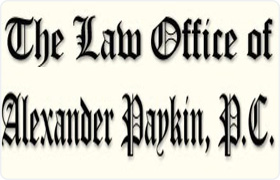Wantagh Construction Lawyer, New York
Sponsored Law Firm
-
 x
x

Click For More Info:
-
The Law Office of Alexander Paykin, P.C.
350 5Th Ave Fl 59 New York, NY 10118» view mapReal Estate Reliable. Dependable. Accessible.
Whether you are buying, selling, renting, or refinancing your house, our experienced legal team will strongly advocate for you at each and every step of the process.
800-747-9261
Includes: Construction Contracts, Construction Liens, Housing & Construction Defects
John Michael Comiskey
Construction, Lawsuit & Dispute, Collection, Accident & Injury
Status: In Good Standing Licensed: 26 Years
Robin Radbell Halstrom
Premises Liability, Construction, Labor Law, Disability
Status: In Good Standing Licensed: 32 Years
 Alexander Paykin New York, NY
Alexander Paykin New York, NY AboutThe Law Office of Alexander Paykin, P.C.
AboutThe Law Office of Alexander Paykin, P.C. Practice AreasSpecializations
Practice AreasSpecializations
